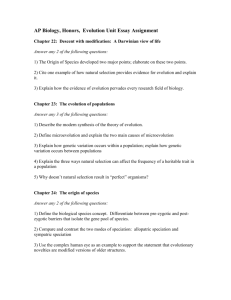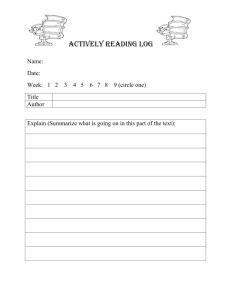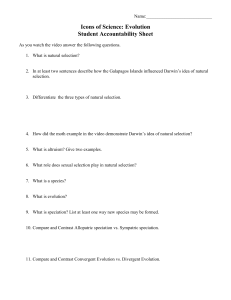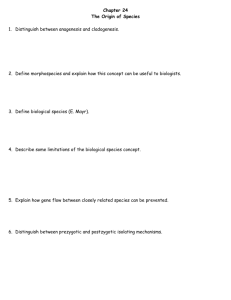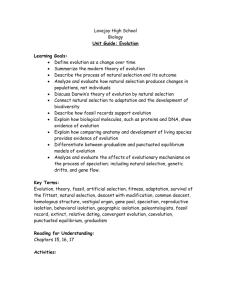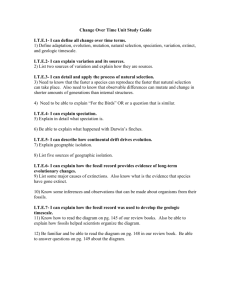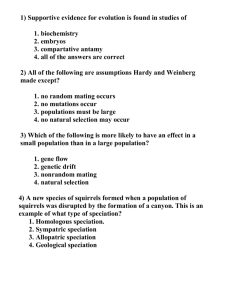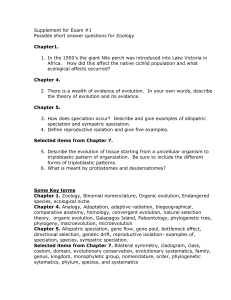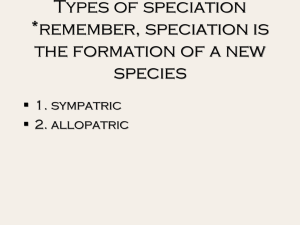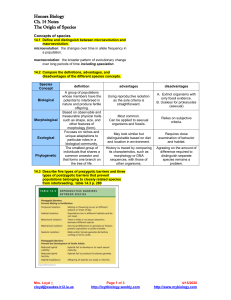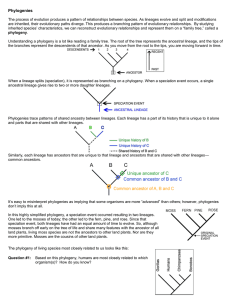Understanding Evolution: Minute paper For the instructor:
advertisement
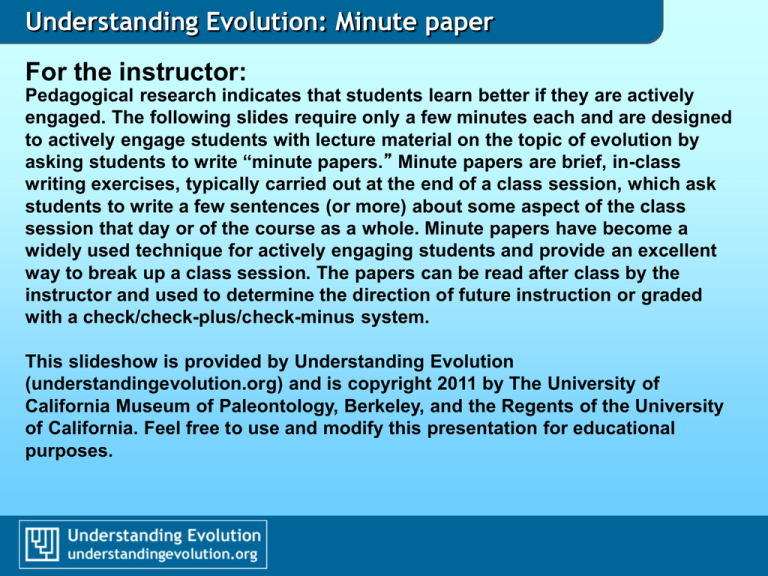
Understanding Evolution: Minute paper For the instructor: Pedagogical research indicates that students learn better if they are actively engaged. The following slides require only a few minutes each and are designed to actively engage students with lecture material on the topic of evolution by asking students to write “minute papers.” Minute papers are brief, in-class writing exercises, typically carried out at the end of a class session, which ask students to write a few sentences (or more) about some aspect of the class session that day or of the course as a whole. Minute papers have become a widely used technique for actively engaging students and provide an excellent way to break up a class session. The papers can be read after class by the instructor and used to determine the direction of future instruction or graded with a check/check-plus/check-minus system. This slideshow is provided by Understanding Evolution (understandingevolution.org) and is copyright 2011 by The University of California Museum of Paleontology, Berkeley, and the Regents of the University of California. Feel free to use and modify this presentation for educational purposes. Understanding Evolution: Minute paper Write a short response to the following question: What is evolution? Understanding Evolution: Minute paper Write a short response to the following question: Is evolution a theory, a fact, or something else entirely? Why? Understanding Evolution: Minute paper Write a short response to the following question: What evidence supports the theory of evolution? Understanding Evolution: Minute paper Write a short response to the following question: What is the fossil record’s unique contribution to our understanding of evolution? Understanding Evolution: Minute paper Write a short response to the following question: What do you think it means when a species is called a “living fossil?” Understanding Evolution: Minute paper Write a short response to the following question: What are transitional features? Understanding Evolution: Minute paper Write a short response to the following question: Is it correct to say that humans evolved from chimpanzees? Why or why not? Understanding Evolution: Minute paper Write a short response to the following question: Describe the mechanisms of evolution. Understanding Evolution: Minute paper Write a short response to the following question: In order for natural selection to occur in a system, what characteristics must the system have? Understanding Evolution: Minute paper Write a short response to the following question: If a species has a vestigial anatomical structure that it no longer uses, would you expect this structure to disappear over many generations through the action of natural selection? Always, sometimes, or never? Explain your answer. Understanding Evolution: Minute paper Write a short response to the following question: Outbreaks of E coli that are resistant to antibiotics have killed and sickened many. Is this an example of evolution? Why or why not? Understanding Evolution: Minute paper Write a short response to the following question: What does it mean to be fit in an evolutionary sense? Understanding Evolution: Minute paper Write a short response to the following question: Why are small populations more strongly affected by genetic drift than large ones? Understanding Evolution: Minute paper Write a short response to the following question: What is coevolution? Understanding Evolution: Minute paper Write a short response to the following question: Compare and contrast the biological species concept and the phylogenetic species concept. Understanding Evolution: Minute paper Write a short response to the following question: Describe a situation in which it would be difficult to apply the biological species concept and explain why it would be difficult. Understanding Evolution: Minute paper Write a short response to the following question: How is allopatric speciation similar to and different from sympatric speciation? Understanding Evolution: Minute paper Write a short response to the following question: The phylogenies below show two hypotheses regarding the relationships among vertebrates. The phylogeny on the right groups sharks and ray-finned fish together as a clade, and the phylogeny on the left does not. Which hypothesis do you think is more likely to be accurate and why?

